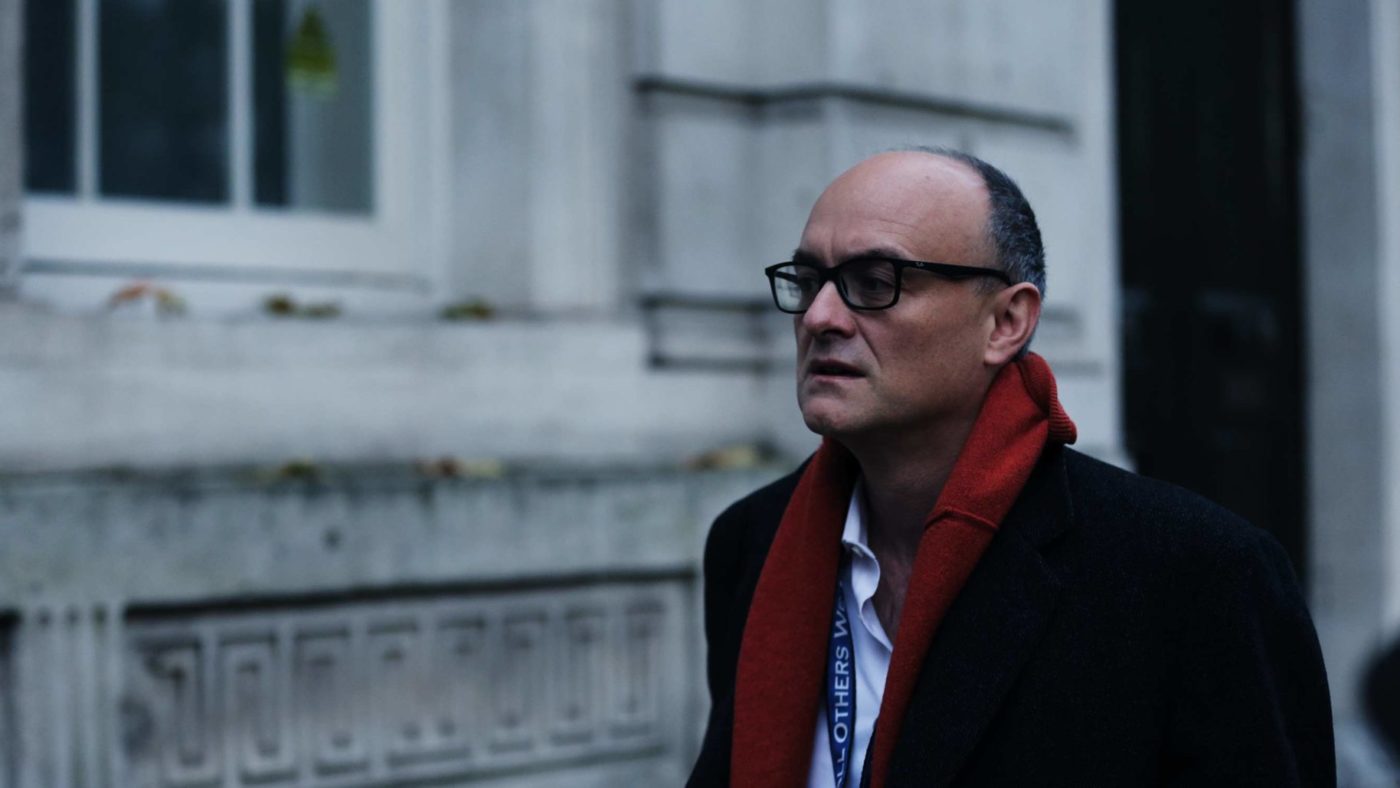A few short months ago, in the summer, I tried to offer a bit of comfort to self-styled liberal Conservatives who were feeling forlorn at the prospect of a long and populist Boris Johnson ascendency:
“Bonapartism – patriotic, populist, plebiscitary – can be an unstable thing once out of its pomp. Gauke, or his heirs, could yet follow in the footsteps of those traditional French rightists who first captured, then gutted, and finally replaced the glittering but ill-managed Second Empire of Napoleon III. No prizes for guessing who his modern counterpart might be.”
It seems as if they did not have long to wait. Whether or not the current furore really does signal the imminent departure of Dominic Cummings himself, the consensus does seem to be that it marks the overthrow of the Vote Leave regime which has ruled Downing Street since the Prime Minister took office.
According to The Times, he now “wants to reset the government and make it less adversarial, ending the ‘culture wars’ against institutions such as the BBC” – a remarkable volte-face for an administration which only a few weeks ago was making high-profile appointments to the BBC and Ofcom.
In this, Johnson’s fate again mirrors that of Napoleon III. After seizing power in a coup d’état in late 1851, the Emperor originally constructed an ‘authoritarian empire’ which fully embodied the Bonapartist ideal. Yet by 1859 his internal enemies had grown so numerous that he had to abandon the programme. The later, ‘liberal’ Empire kept the outward form of the imperial monarchy but gutted its substance.
And there is a distinctly monarchical aroma to the current coverage. The charge that Johnson has been ‘let down by his advisors’, advanced by Guto Harri and many others, is straight out of the medieval playbook. Indeed, to draw another French comparison, the current battle sometimes resembles nothing so much as a fight to the death between pale echoes of Cardinal Richelieu and Milady de Winter (with the King, as in the source material, more an absence than a presence).
What this means for the future of the Government is, at least in terms of the details, an open question that will depend in part on the final structure of the new regime. ‘Johnsonism’ has always been something of an empty vessel, and there is no shortage of organised backbench groups clamouring to fill in the blanks. But the outlines are already emerging: Symonds’ influence in the new emphasis on green issues; a capitulation to Gove’s softly-softly approach to Scotland; and the perennial clangour of the passed-over for a step or two back from the future.
Perhaps this won’t ultimately bother Johnson very much. He does give the impression of being a man not especially concerned as to what cheering crowd has hoisted him aloft, so long as he is aloft and there is cheering going on. But there are lessons here for future would-be Prime Ministers.
Johnson has managed, in six months, to appear weak twice over when it comes to Cummings. When he refused to sack him over the Barnard Castle incident, he looked dependent. To have lost him now, having burned all that political capital, makes him look hapless. But he might also have looked weak had he dismissed Cummings over the summer – throwing one’s aides to the wolves is simply never a good look. Strength is being able to retain or dismiss one’s advisers as one chooses (wisdom is knowing when to, but that would be another article). At present, Johnson looks weak both coming and going, his once-irrepressible personality eclipsed by those of his warring courtiers and the slogans of his agenda (‘levelling up’) parroted easily back at him by people with more coherent programmes.
For the Brexiteers, the lesson is harder but perhaps will be better learned: that a lasting radical programme, in the British system and especially in the Conservative Party, can only come from the top. Margaret Thatcher would have abandoned the cause of popular capitalism, just as Edward Heath did, had she not believed in it to her very bones. Overturning deeply-entrenched orthodoxies and vested interests is hard, sometimes brutal, and often thankless work, which is why leaders prepared to undertake it (let alone successfully) are so rare. In most cases, advisers significantly more radical than their masters are just borrowed feathers, and the other birds will get wise to them in the end.
So congratulations, perhaps, to the forces of yesterday’s normal. Coming so swiftly on the heels of Joe Biden’s victory in the US election, it must be tempting for some to conclude that 2020 is ending on something of a hope spot.
But I suspect that would be premature. Paul Goodman may be right to fear that the Tories may now retreat to their southern-focused comfort zone, but that tactical miscalculation won’t halt the deeper forces pushing the Right, on both sides of the Atlantic, towards a working-class realignment. Cummings’ focus on renovating the British state may fall by the wayside but the dire need for such an overhaul – what I dubbed our Meiji Restoration – will only grow more acute. The next generation of the Right, schooled in the many setbacks of the current one, may be both more determined and more able.
For his part Johnson, our emperor in borrowed feathers, may be set to continue his strange tribute to the forgotten Napoleon. After 1859 he was allowed to keep his throne, dignifying the work of his opponents until his final, humiliating defeat at Sedan. Although, if the rumours are true, then the Prime Minister may well bow out before he lets Sir Keir Starmer play von Moltke.
Click here to subscribe to our daily briefing – the best pieces from CapX and across the web.
CapX depends on the generosity of its readers. If you value what we do, please consider making a donation.


